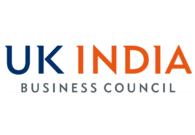A Bright Future for the UK-India Trade and Investment Relationship
No doubt, 2020 has been the most difficult of years. But, as vaccines start to emerge, coupled by the announcement that Prime Minister Johnson will visit India in January, I see a very bright future for the UK-India trade and investment relationship.
The planned Enhanced Trade Partnership, or ETP, announced by Ministers in July this year sets the tone for what should be a productive year. Not just because it sets-out a roadmap to an FTA, but importantly it will keep a sharp focus on the immediate need to address market access barriers and improve the ease of doing business.
I’m drawn to this approach because a successful journey to an FTA will need to build momentum – it is imperative that both governments deliver incremental market access reforms across a range of priority sectors.
We need to aim high, and we need to look forward
The breadth and ambition of the Enhanced Trade Partnership is also to be welcomed. It covers tariffs, trade in goods and services, and investment.
What is not yet evident is the degree to which the ETP is future-proofed. In a digital world, where goods supply chains are increasingly regional rather than global, it is clear that IP-rich innovations, technology transfer, and digital services are going to drive the future trading partnership between the UK and India. So, it is important that issues like sustainability, intellectual property and digital services are central to the partnership.
This journey to an FTA is the result of impressive long-term thinking and extensive government engagement with business. The UK-India G2G engagement this year has had greater intensity and purpose than before. It feels like there is real political will to reform, to quickly remove the technical barriers to trade, to examine tariffs, and to work towards a trade deal. Perhaps that is due to the UK Government planning for life outside the EU and the realisation, in both countries, that the UK-India relationship has so much more to give.
We need top level political engagement
Mr Modi’s invitation to PM Johnson to Delhi as Chief Guest at the Republic Day celebrations is an opportunity to turbo-charge the partnership. 2021 offers three excellent opportunities for PM Modi and PM Johnson to increase the intensity and raise the ambition. These are:
- the Commonwealth Heads of Government Meeting (CHOGM) in Rwanda in late June;
- the UN Climate Conference, or COP26, in Glasgow in November; and
- perhaps the UK’s chairmanship of the G7 at which, if reports are to be believed, could see the creation of the D10, which will bring three major democratic powers – India, Australia and South Korea, alongside the existing G7.
This repeated top-level engagement will create the impetus, as our countries emerge from the Covid recession, for even deeper collaboration on trade, investment, and a wide range of issues vital to both nations.
We need to be realistic
With so much opportunity and positivity, it could be easy to get carried away. So, it’s important to recognise that the UK-India trade and investment relationship will not all be plain sailing. There are complexities to be navigated, in both countries.
In the UK, important changes are happening with the Brexit transition period ending on 31 December. The UK economy will also be influenced by a new India-friendly immigration policy, Covid and the associated “build back better” recovery. UK devolution is also relevant to Indian businesses, with the Governments in Scotland, Wales and Northern Ireland, as well as the influential Mayors in the city regions around Sheffield, Manchester and Birmingham all developing economic recovery and growth policies and strategies.
In relation to India, there remains some concern that Atmanirbhar Bharat could lead to protectionist measures. Although 77 percent of UK companies said in a UKIBC survey that they are positive about the opportunities it brings, the embargo on the sales of foreign products in the CSD canteens and the ban on foreign companies bidding in tenders worth up to £20 million don’t help to address worries about protectionism.
Alongside this, investors are watching eagerly to see if the Government of India accepts the international arbitration decision in favour of Vodafone. If it accepts this decision, the Government would send a hugely positive message to the international investor community: India is an investor friendly country and the “legacy” issues of “tax terrorism” inherited by PM Modi in 2014 have been dealt with. This would be a powerful statement.
Given the shared objectives, the strength of the partnership, and the political will on both sides, I am confident that all these matters can be addressed.
We need to build back better, together
We should take the opportunities presented in 2021 to enhance not just the trade partnership, but the profile of the bilateral UK-India G2G relationship.
There is the UK-India CEO Forum, the ETP, the Joint Economic and Trade Committee, the Economic and Financial Dialogue, plus other dialogues focussing on subjects like legal services. There is an extensive partnership on the Ease of Doing Business and, of course, there is the UK-India Tech Partnership launched when Mr Modi was in London in April 2018.
All these elements are valuable. They deepen the bilateral relationship and deliver for businesses. But if we could align them more-tightly, as part of a UK-India Strategic Trade, Investment and Economic Dialogue, it would make these elements greater than the sum of their parts.
Such an approach, driven and inspired by Prime Ministerial leadership, would signal to the world that the UK and India are important to each other and that our countries, working together, are going to make sure that 2021 is hugely positive.

 By Kevin McCole
By Kevin McCole 



